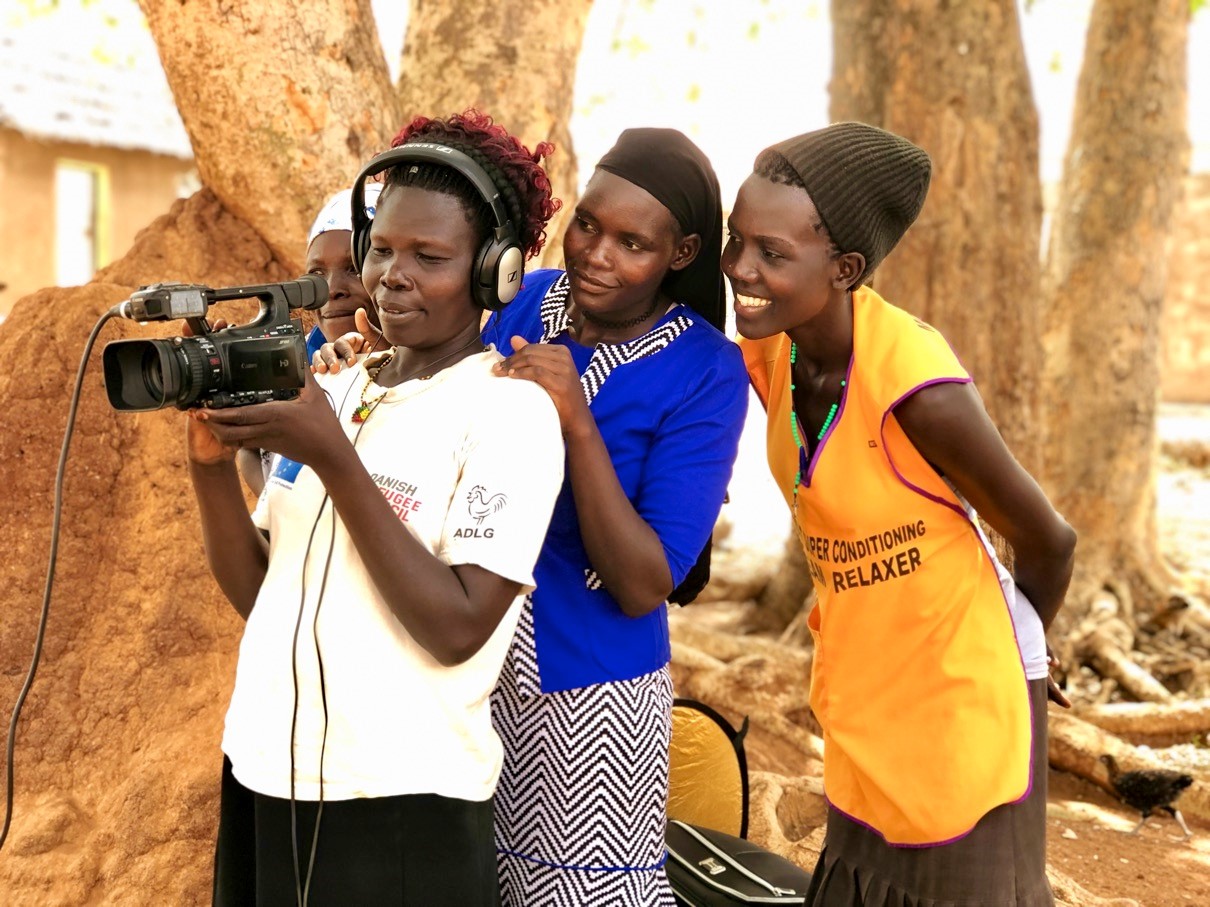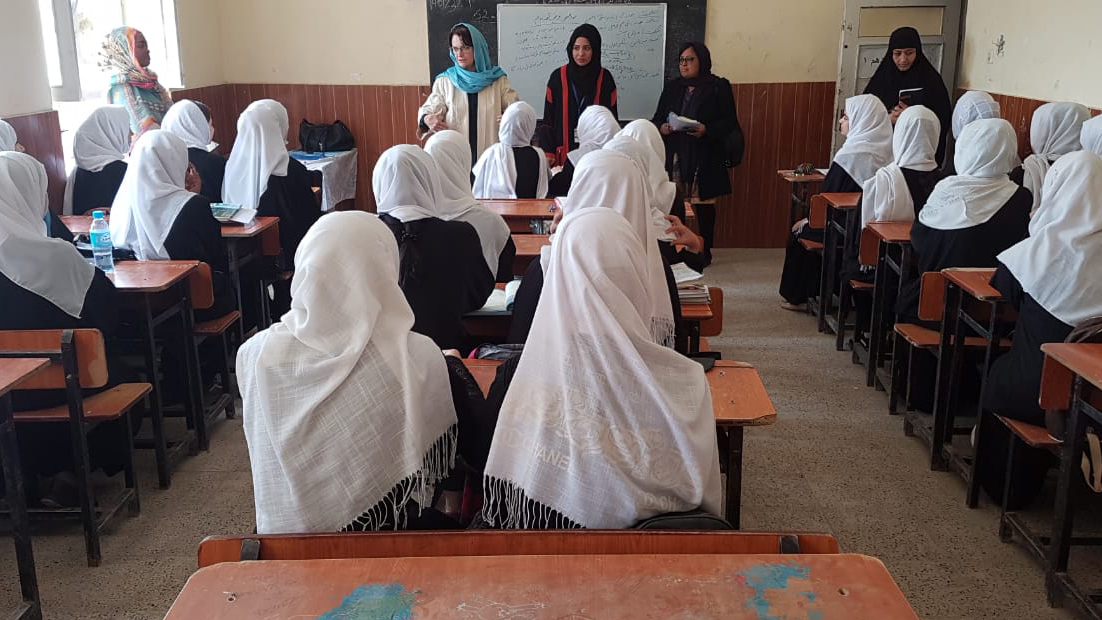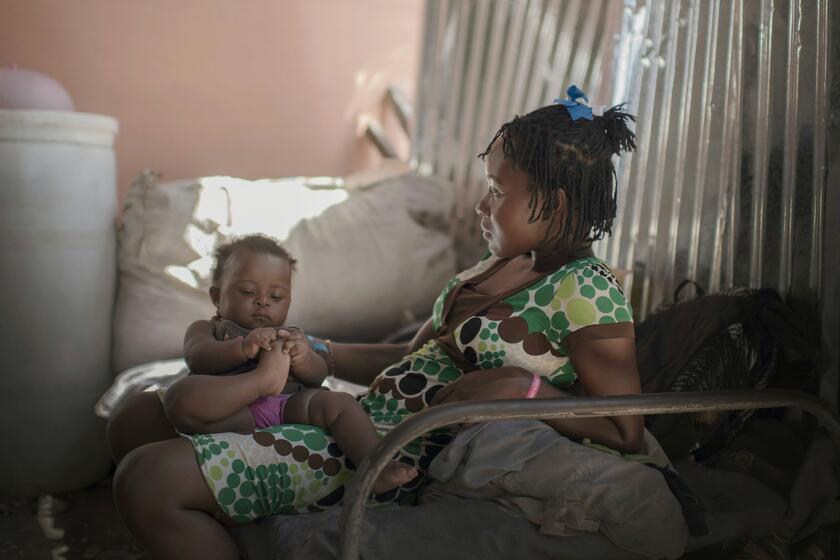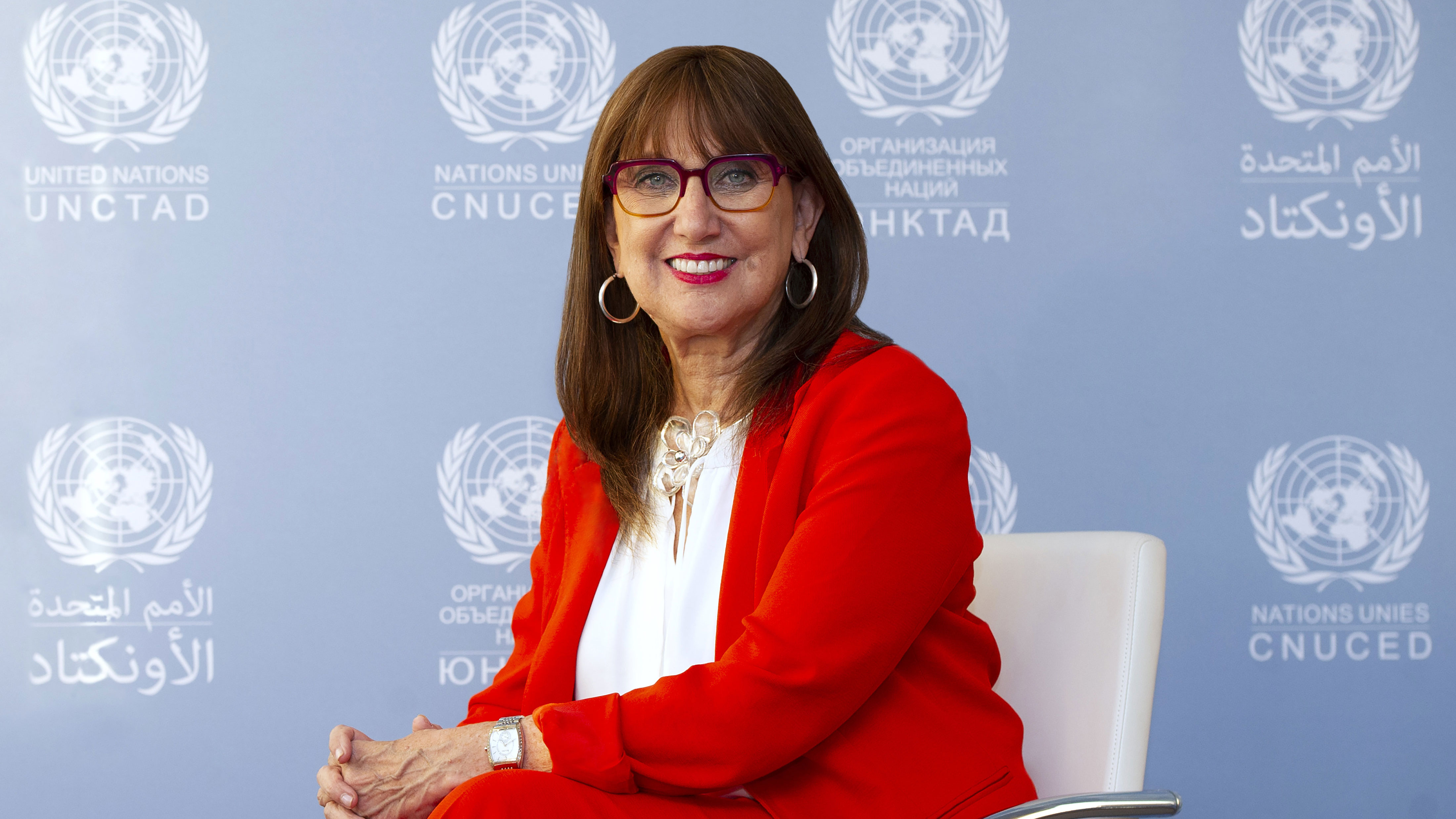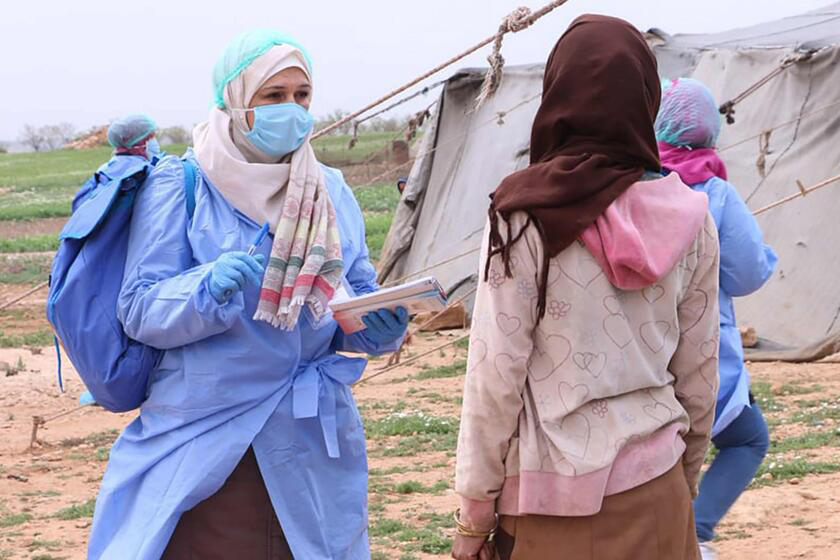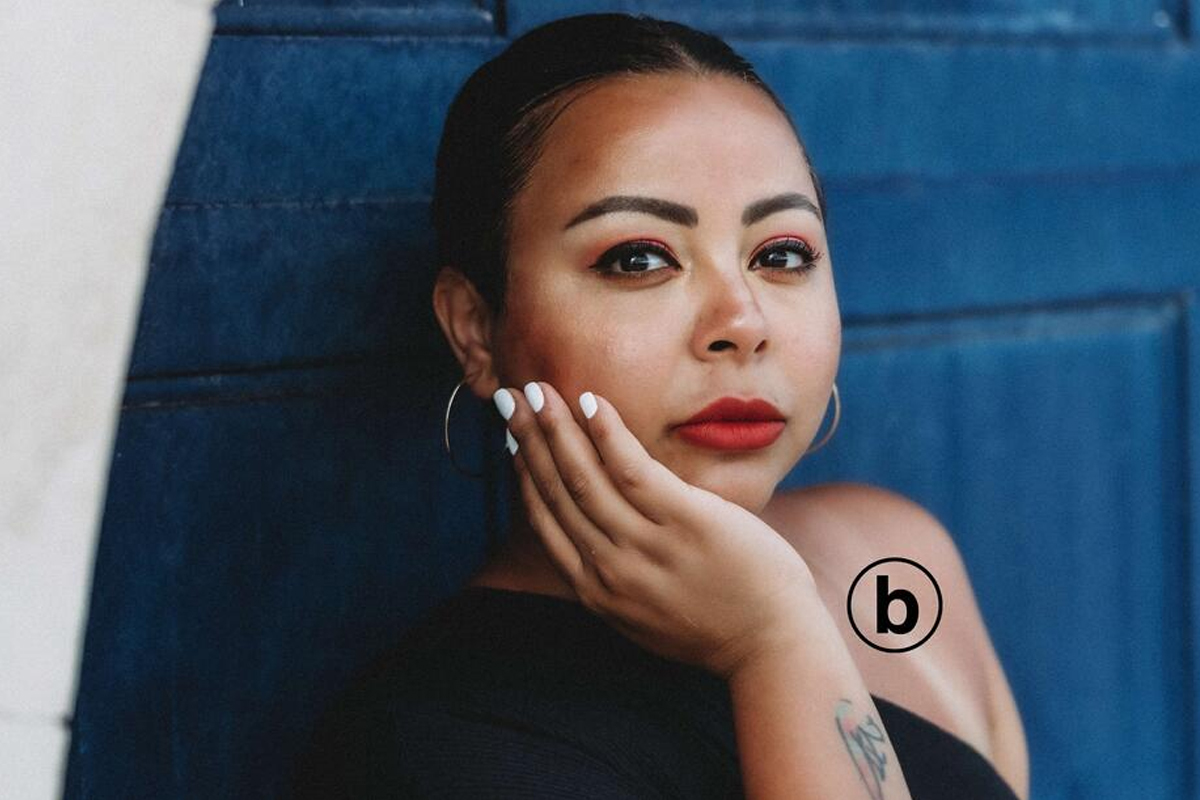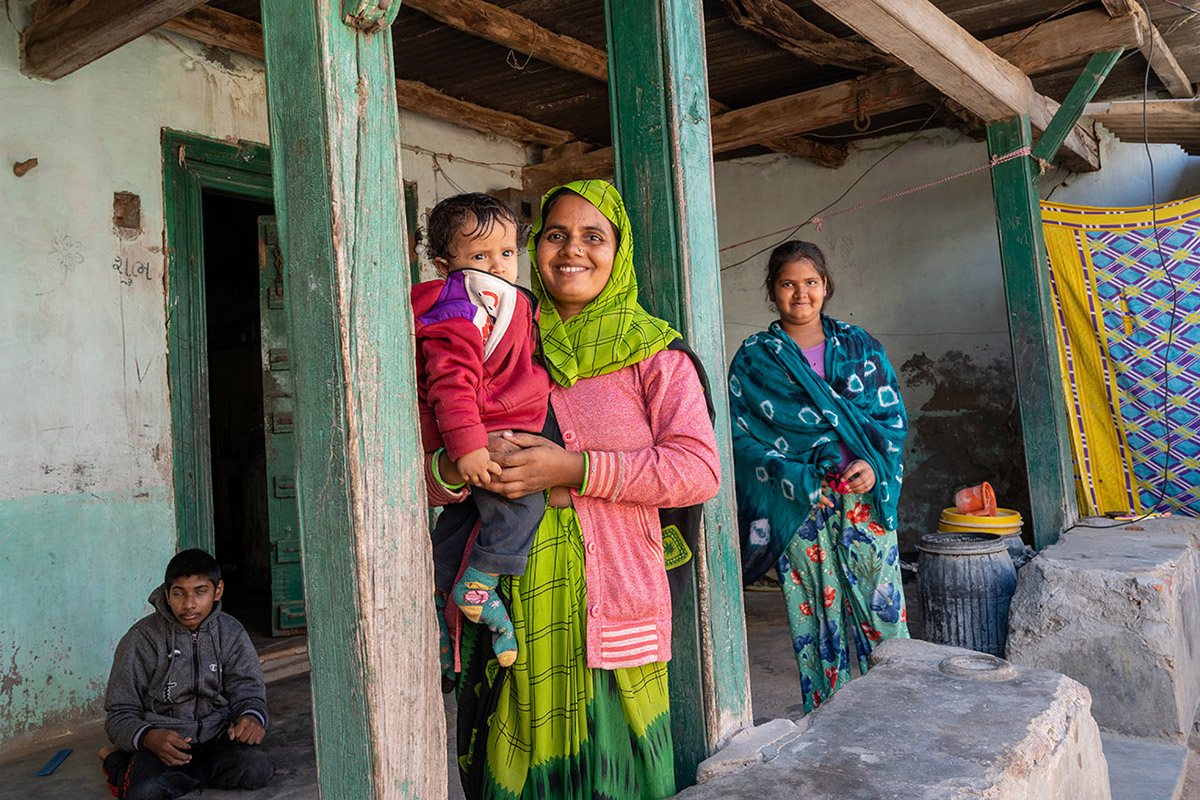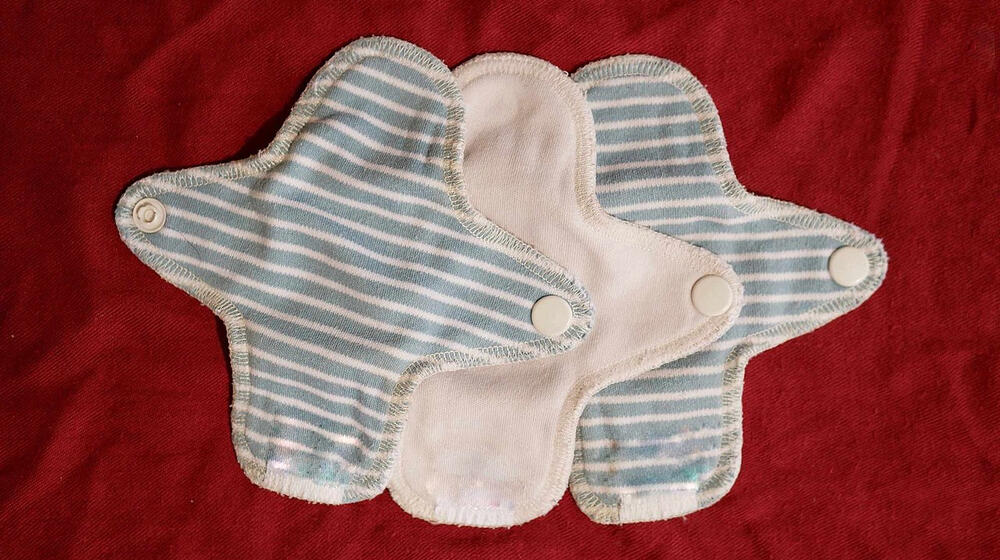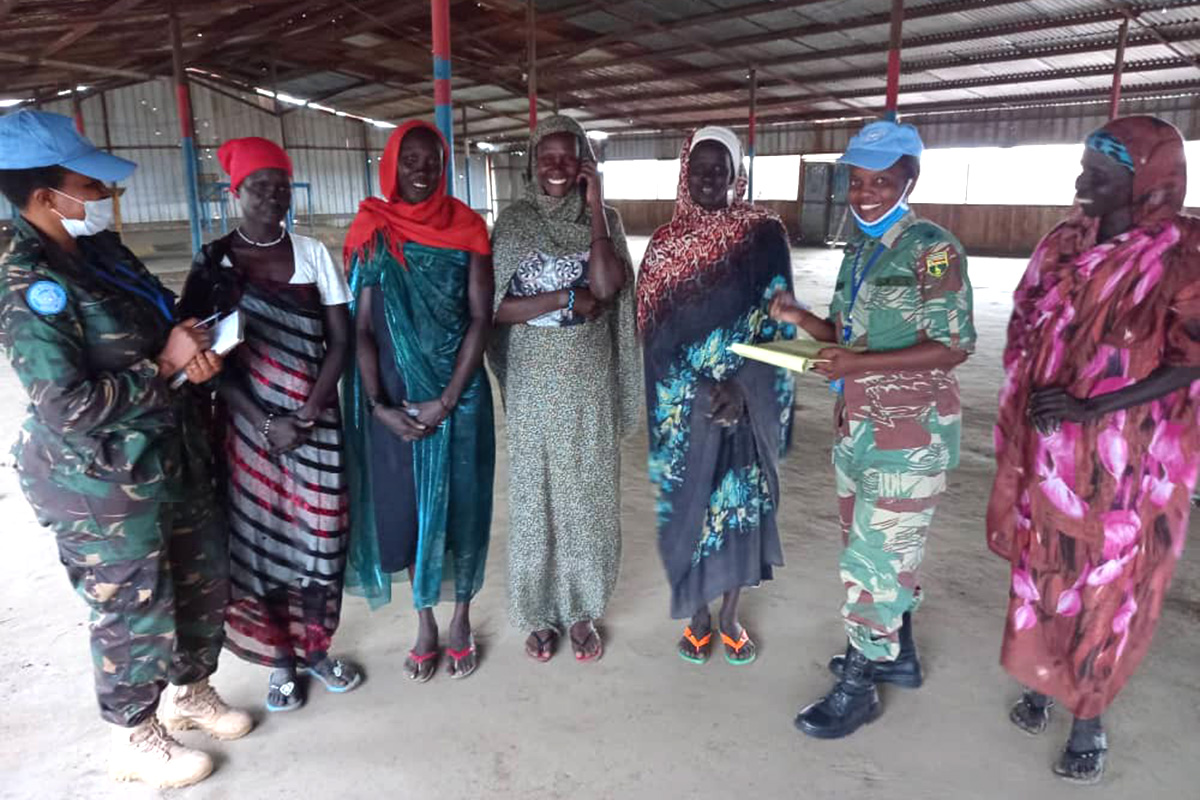1 year ago, the Taliban took control of Afghanistan. Every day since, life has become harder for Afghan women and girls as their rights and freedoms have been rolled back and their voices have been silenced. UN Women has been in Afghanistan for the last 10 years & continues to stay and deliver for Afghan women & girls in the midst of the world's gravest women’s rights crisis.
Though women and children make up 81 per cent of the nearly 1.53 million refugees in Uganda, refugee settlement leadership has historically lacked women’s representation. Cultural barriers, coupled with limited knowledge on rights and access to education, kept women from participating in decision-making processes. In 2018, UN Women began providing trainings for the women and youth of Adjumani and Yumbe districts, which host 30.1 per cent of Uganda’s total refugee population. The trainings included instruction in literacy, numeracy, women’s rights, leadership and life skills development, public speaking, debating and radio presentation. The results are striking.
“I found it fascinating as a leader […] to be in an environment of collective fear […] people naturally go to a place of great horror […] yet you're trying to buffer it yourself, because you've got to function […] The second point is the ego of leadership […] you've got to be very careful that you're not letting the ego [... drive] you past the point of really solid judgement and solid reflection.”
Deborah Lyons knows how to keep a cool head in a crisis. In August 2021, when the Taliban seized power, in her former role as Head of the United Nations Assistance Mission in Afghanistan (UNAMA), Deborah was responsible for ensuring the safety of staff across the country, among them many women. Since returning to power, the Taliban have severely curtailed women’s rights. Millions of women and girls are now excluded from work and school, contrary to initial assurances from Afghanistan’s new leaders. In this episode, Deborah Lyons reflects on the tragedy facing Afghan women, the trauma of the Taliban takeover, and what it takes to lead in turbulent times.
In the Yunnan Province, the Bai and Naxi women reached an agreement in favor of the sustainable collection of morille mushrooms. The mushrooms can only be picked when they are more than 5cm in size and are open and dispersed to allow the mushrooms to fully release their spores. Furthermore, the women patrol and supervise possible theft of wood and herbs. China’s ethnic minority women play a vital role in protecting traditional knowledge and cultural heritage. Since 2010, more than 41,800 people belonging to China’s ethnic minorities have been supported by the GEF/SGP implemented by UNDP.
Viktoria is one of few women firefighters in Ukraine, and the only one in the Kyiv region. She said positive thinking helps her and her colleagues to face the daily demands of their risky job. “It doesn’t matter where you work now. With the current situation in Ukraine, there’s a risk everywhere,” she said. As of July, at least 41 Ukrainian rescue workers, including firefighters, have been killed, and 134 have been injured since Russia invaded Ukraine on 24 February, according to Ukraine’s State Emergency Service (SES).
The “What Were You Wearing?” art exhibit at the United Nations invites observers to see the outfits worn by sexual assault survivors at the time of their attack, confronting and refuting the implicit victim blaming in that question. Featuring contributions by survivors, including Paris Hilton, as well as the United Nations Deputy Secretary General and other officials, this video shows how the campaign by Rise and the Spotlight Initiative shifts blame for sexual assault to where it belongs: squarely on the perpetrators.
Almost one third of women in developing countries had their first baby while they were still in their teens, a recently released report shows, with nearly half of those new mothers aged 17 and younger – still children themselves. Gender-based and income inequalities are highlighted as key in fuelling teen pregnancies by increasing child marriage rates, keeping girls out of school, restricting their career aspirations, and limiting health care and information on safe, consensual sex.
Globally, women’s participation rate in ports is only 18%. UNCTAD’s TrainForTrade port management programme is helping to bridge the gender gap by empowering more women in ports.
“We don't have to be naive, but we have to believe in change, because change has happened. And we can make it happen again.”
Despite monitoring multiple global crises, Rebeca Grynspan has never lost her faith in the power of change. As Secretary-General of the United Nations Conference on Trade and Development (UNCTAD), she is assessing the impact of the war in Ukraine on cash-strapped countries still reeling from the pandemic. A trio of crises – climate change, COVID-19, and the war in Ukraine – are setting global development by decades, with vulnerable countries worst affected by global food and energy shortages. In this episode, Rebeca Grynspan reflects on these setbacks, their disproportionate impact on women, and why the world can never give up on the promise of development.
Photo: ©UNCTAD/Violaine Martin
Data show that restricting access to abortion does not prevent people from seeking abortion, it simply makes it more deadly. As UNFPA’s 2022 State of World Population report reveals, nearly half of all pregnancies worldwide are unintended, and over 60 per cent of these unintended pregnancies may end in abortion. A staggering 45 per cent of all abortions are unsafe, making this a leading cause of maternal death. Almost all unsafe abortions occur in developing countries, and UNFPA fears that more unsafe abortions will occur if access to abortion becomes more restricted.
Sexual violence in conflict settings remains widespread and systematic, a recent report by the United Nations Secretary-General found, fuelled by “rising inequality, increased militarization, reduced civic space and the illicit flow of small arms and light weapons, among other factors.” Conflict-related sexual violence – which includes assault, rape, forced marriage, trafficking, sexual slavery, forced sterilization, forced abortion other forms of sexual coercion – is used to instill fear, pain, suffering and censorship in its targets.
Attacks on female journalists have reached unprecedented levels. A recent UNFPA report noted that women journalists, human rights defenders, activists and leaders are disproportionately attacked, with public forums being used to threaten, harass and stalk, and to promote hate speech targeting them. “It’s chilling and sets a dangerous precedent for human rights violations,” said Reem Abdellatif, an Egyptian-American journalist who has endured abuse because of her profession. Hate speech has been recognized by the United Nations as a major threat to peace and human rights.
For many women around the world, the devastating loss of a partner is magnified by the long-term struggle for their basic rights and dignity. Even though there are more than 258 million widows around the world, historically, widows have been left unseen and unsupported. Today, as armed conflicts, displacement, and the COVID-19 pandemic leave women newly widowed or with disappeared partners, the unique experiences and needs of widows must be brought to the forefront. This International Widows’ Day, let’s make their voices lead to the path to equality.
Menstruation is not only an issue of health, hygiene and dignity, but also a matter of gender equality and human rights.
Major Winnet Zharare is the first Zimbabwean to receive the prestigious UN Military Gender Advocate of the Year Award for her outstanding efforts to integrate gender perspectives into peacekeeping.

